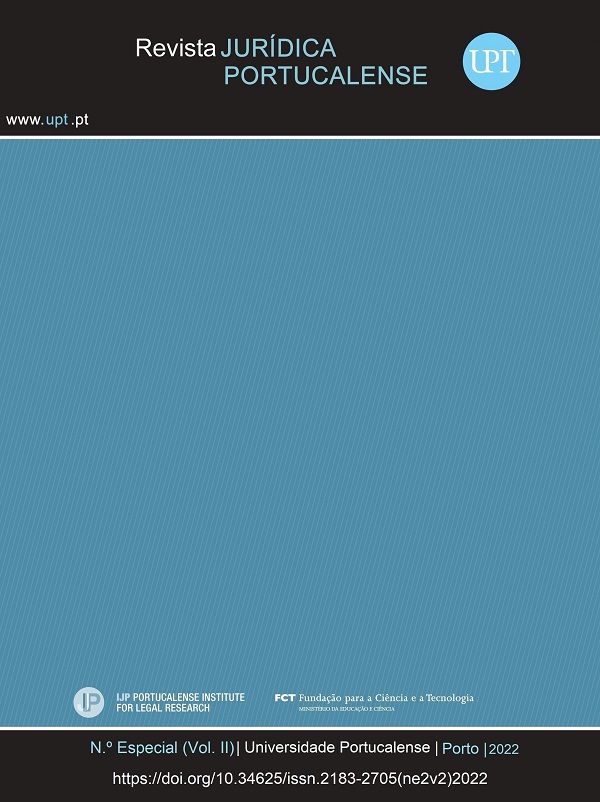Execução da Decisão Europeia de Arresto de Contas no ordenamento português – Proposta de um modelo desmaterializado
Palavras-chave:
Decisão europeia de arresto de conta, arresto europeu, arresto de conta bancária, cooperação judiciária civil, espaço europeu de justiça.Resumo
A obtenção de uma Decisão Europeia de Arresto de Contas (DEAC), ao abrigo do procedimento previsto no Regulamento 655/2014, de 15 de maio, do Parlamento Europeu e do Conselho, permite que uma entidade judicial de um Estado-Membro (de origem) ordene o arresto de contas bancárias de que um devedor seja titular noutro Estado-Membro (de destino). Trata-se de um instrumento de natureza cautelar, de carácter preventivo e urgente, com efeitos executórios transfronteiriços, que visa conferir segurança às relações económicas e comerciais no espaço europeu de justiça. A execução da DEAC, cuja competência é da entidade designada por cada Estado-Membro – no caso português, a Ordem dos Solicitadores e dos Agentes de Execução – segue o direito interno, devendo ser célere e eficaz. No caso português, apesar de a ação executiva ser tramitada eletronicamente, assente num processo desmaterializado, a execução de uma DEAC não segue uma tramitação digital, o que aqui se critica, propondo um modelo que permita evoluir para um procedimento desmaterializado, que seja mais rápido, seguro e eficiente.
Referências
BAIXO, K., Decisão europeia de arresto de contas: uma proposta de tramitação e implementação no sistema informático de suporte à atividade dos agentes de execução, Tese de Mestrado, Instituto Politécnico do Cávado e do Ave, Barcelos, 2020.
LOPES, M. M., “Breve análise ao procedimento de decisão europeia de arresto de contas bancárias”, Revista da Ordem dos Advogados, Ano 78 (Jul./Dez. 2018), pp. 791 833.
MESQUITA, L. V., O Título Executivo Europeu como Instrumento de Cooperação Judiciária Civil na União Europeia - Implicações em Espanha e Portugal, Almedina, 2012.
_____________, A (des)protecção do devedor na proposta de criação do procedimento europeu específico para o arresto de contas bancárias, in “Estudos em Homenagem ao Prof. Doutor José Lebre de Freitas”, Coimbra Editora, 2013, pp. 9991-1020.
_____________, “Tutela Cautelar no Espaço Europeu de Justiça: A Decisão Europeia de Arresto de Contas” in Solicitadoria e Ação Executiva, 2017, Vol. Estudos 5, p. 95-110.
GORIS, C. S., “The Implementation at the National Level of the Bank Account Information Mechanism under the EAPO Regulation: A Comparative Analysis”, Cuadernos Derecho Transnacional, Vol. 12, n.º 1, 2020, pp. 386-412, DOI: https://doi.org/10.20318/cdt.2020.5194.
JEULAND, E., 2019. La clef de voûte de l’espace judiciaire européen : le règlement n° 655/2014 du 15 mai 2014 créant une procédure d'ordonnance européenne de saisie conservatoire des comptes bancaires (OESC). HAL Id: hal-02025794. [Online] 19 de fevereiro de 2019. [consult. 23 de abril de 2021.] Disponível em https://hal.archives-ouvertes.fr/hal-02025794.
REQUEJO ISIDRO, M., An Autonomous Notion of Periculum in Mora?, The European Association of Private International Law, 26 de novembro de 2020, https://eapil.org/2020/11/26/an-autonomous-notion-of-periculum-in-mora/.
SOUSA, M. T. de, “O Reg. 655/2014 sobre o procedimento de decisão europeia de arresto de contas”, Revista da Ordem dos Advogados, Ano 79 (Jan./Jun. 2019), pp. 189-253.
VILLA MARÍN LÓPEZ, M. L., “Harmonisation of the rules on the protective measures? The European Account Preservation Order”, in The Future of the European Law of Civil Procedure: Coordination or Harmonisation?, Fernando Gascon Inchausti, Burkhard Hess (Editores), Intersentia, 2020, pp. 111-122.
Downloads
Publicado
Como Citar
Edição
Secção
Licença
Autores que publicam nesta revista concordam com os seguintes termos:
- Autores conservam os direitos de autor e concedem à revista o direito de primeira publicação, com o trabalho simultaneamente licenciado sob a Licença Creative Commons Attribution que permite a partilha do trabalho com reconhecimento da autoria e publicação inicial nesta revista.
- Autores têm autorização para assumir contratos adicionais separadamente, para distribuição não-exclusiva da versão do trabalho publicada nesta revista (ex.: publicar em repositório institucional ou como capítulo de livro), com reconhecimento de autoria e publicação inicial nesta revista.
- Autores têm permissão e são estimulados a publicar e distribuir o seu trabalho online (ex.: em repositórios institucionais ou na sua página pessoal) a qualquer ponto antes ou durante o processo editorial, já que isso pode gerar alterações produtivas, bem como aumentar o impacto e a citação do trabalho publicado (Veja O Efeito do Acesso Livre).
A RJP não aplica taxas de submissão, publicação ou de qualquer outra natureza, sendo os artigos publicados em acesso livre e aberto, com a missão de difusão do conhecimento científico e o debate de temas jurídicos na área das Ciências Jurídicas.






